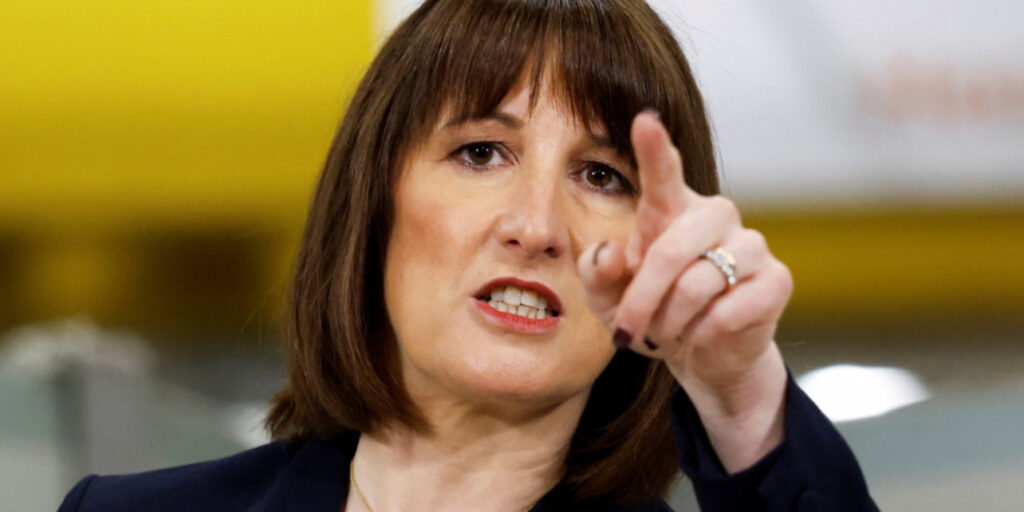The UK’s annual borrowing overshot official forecasts by nearly £15 billion in the last financial year, dealing a significant blow to Chancellor Rachel Reeves and raising fresh concerns about future tax hikes or spending cuts.
According to the Office for National Statistics (ONS), government borrowing for the financial year ending in March 2025 reached £151.9 billion—more than £20 billion higher than the previous year, and £14.6 billion above projections from the Office for Budget Responsibility (OBR) published alongside the spring statement.
The shortfall arrives amid growing pressure on the British economy, compounded by global market instability and the trade tensions triggered by Donald Trump’s escalating tariff war. Economists now warn that Reeves may need to raise taxes or implement further austerity measures to uphold her fiscal rules during the autumn budget.
Economic Outlook Weakens as Public Spending Strains
Ruth Gregory, deputy chief UK economist at Capital Economics, said: “Public borrowing was already exceeding expectations before the full impact of the tariff chaos takes hold. If the Chancellor wants to stay within her fiscal parameters, more tax rises may be inevitable this autumn.”
The figures come just weeks after Reeves announced controversial cuts to sickness and disability benefits as well as reductions in departmental spending to preserve £9.9 billion of fiscal headroom.
However, with rising demands to boost defence funding and restore vital public services, analysts believe the government may need to revisit its fiscal strategy.
Matt Swannell, chief economic adviser at the EY Item Club, said: “A fiscal rethink at the upcoming spending review and autumn budget looks increasingly likely. The spring statement felt like a stopgap that left major financial questions unanswered.”
Rising Borrowing Costs and Global Trade Tensions
Britain’s rising debt burden has been exacerbated by higher interest payments, driven by investor concerns over the economic implications of Trump’s trade policies. These global tensions have pushed borrowing costs up across international markets, further squeezing public finances.
The International Monetary Fund (IMF) warned this week that Trump’s trade policies had delivered a “major negative shock” to the global economy. Reeves is expected to discuss a possible US-UK trade agreement during the IMF’s spring meetings in Washington this week as she seeks ways to mitigate the impact on the UK economy.
The OBR previously warned that a worst-case global scenario could shave up to 1% off the UK’s GDP, potentially eliminating Reeves’s already narrow fiscal buffer.
Meanwhile, new data released on Wednesday revealed a sharp slowdown in British business activity. The S&P Global Composite Purchasing Managers’ Index dropped to 48.2 in April from 51.5 in March—its lowest level since November 2022. Any reading below 50 indicates economic contraction.
Tax Receipts Rise, But Borrowing Still Surges
Despite a boost in tax income in recent months, March borrowing alone reached £16.4 billion—above economists’ forecasts of £16 billion. ONS Chief Economist Grant Fitzner attributed the increase to inflation-linked costs, including public sector pay rises and higher welfare spending.
Public sector net debt now stands at an estimated 95.8% of GDP—one of the highest ratios since the 1960s—further fuelling concerns over the sustainability of government finances.
Acknowledging the overshoot, the OBR noted that the borrowing figure remains provisional and may be revised. It attributed the discrepancy largely to weaker tax revenues and increased borrowing by both central and local government bodies.
Darren Jones, the Chief Secretary to the Treasury, reaffirmed the government’s commitment to fiscal discipline. “We are combing through every line of public spending to root out waste,” he said, ahead of the June spending review. “Our focus is on ensuring taxpayer money supports our missions to boost incomes, rebuild the NHS, and strengthen our borders.”
As Britain braces for a potentially turbulent economic period, all eyes will be on Reeves in the coming months as she navigates difficult political and fiscal choices in the run-up to the autumn budget.


